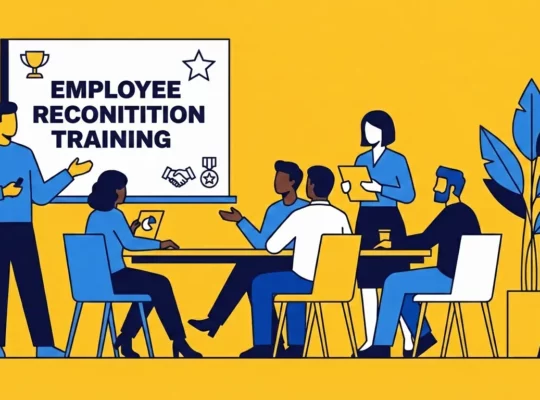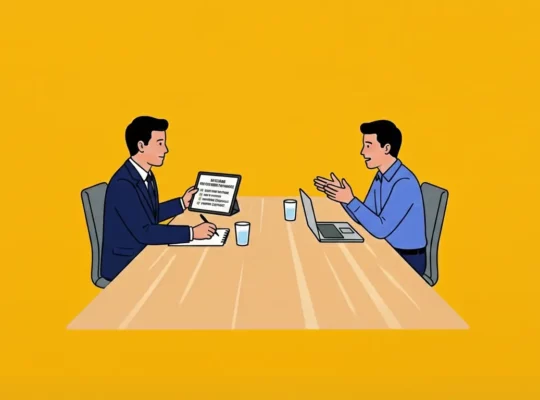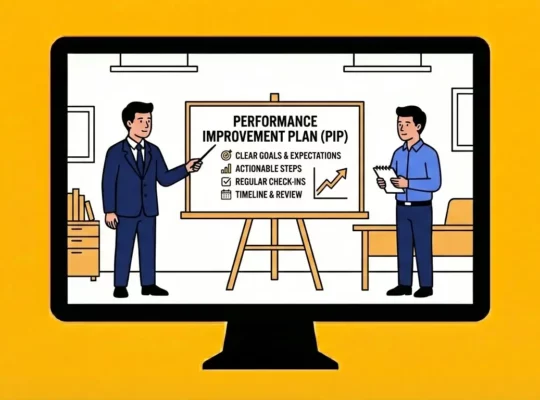According to Fabrice Mauléon, Jérôme Hoarau and Julien Bouret, soft skills are transversal and human behavioral skills. In companies, they are clearly different from skills related to the job, because they are more relational, organizational and emotional. They allow a manager or future manager to distinguish themselves by their involvement in the work, performance and well-being of their team. If you are a manager or aspire to become one, you need to develop some of the manager soft skills. We have prepared for you a selection among the most important.
Request of feedback and a listening ear
Who has never thought of good speaking skills first when talking about the qualities of a good manager? Even if it is important to know how to express yourself, it is even more important to know how to listen to your employees. The manager who aims for success must favor spontaneous exchanges on all topics that affect a member or their team. It is essential that their team is able to approach them and express their feelings and feedback with confidence.
So you need to make yourself available to every member of the team you lead. If this may seem exhausting, then consider setting up a trusted platform of employee reviews, so that they put their comments that you will read as soon as possible. These opinions concern not only the functioning of the team, but also the company’s projects. In your management, this manager soft skill is useful for file management. It is the catalyst for the team to benefit from collective intelligence.
Problem solving
Human interactions, especially in the professional world, generate quite a few problems, which differ in their degrees of complexity. In order to deal with it effectively, companies are looking for managers who go beyond simply identifying and analyzing the problem.
When you, as a team leader, are able to solve complex problems, it means that you can provide sustainable and innovative solutions. To do this, you need to understand the cause, assess the complexity, and study all the parameters of the said problem.
In practice, problem solving is a fairly broad and skill-rich field. Indeed, it combines manager soft skills such as critical thinking, logic, synthesis skills, modeling, or communication.
To be more pragmatic, and at the risk of repeating ourselves, you must be able to:
- break down the problem and bring out all the entanglements;
- develop possible scenarios;
- choose the scenario that seems to perform better and evaluate it;
- Initiate the implementation of the solution.
- Monitor the impact of results over a sufficiently long period of time.
This manager soft skill is essential for the smooth running of your team.
Good leadership
Management necessarily means leadership. Over the past decade, the concept of leadership has evolved considerably. It’s no longer just about being in a position of responsibility. It also means demonstrating motivation, federation and good conduct of your team in order to get each employee to contribute appropriately to the achievement of objectives.
By combining your soft skills and management you will succeed to improve to a great extent your reasoned judgment and your decision-making. Because you will think first and foremost of the collective interest. Your role in addition to leading the team is to provide inspiration and ensure good team cohesion. To do this, it will be essential for you to scrutinize your employees, to find their talents and skills in order to make the most of them. Beyond the tasks and missions of your team, you must also care about everyone’s well-being. It is the guarantee of a united and determined team. You will thus lay the right foundations for participatory management.
All managers want to be listened to, influenced and followed. The advantage with leadership is that you can learn it. Because to have charisma and impose yourself, you only need two key elements. It is about good decision-making skills and speaking skills. It is also not a question of expressing yourself as a Greek god, but of taking care of your presentations by working on your stress and learning your transitions. Take the time to rehearse your transitions to bring fluidity to your speech. A good speaker always attracts attention. By practicing speaking regularly, you will be an ace the day your expertise is required on a topic.
Agility
Are you able to adapt very quickly and evolve in unknown territory? This sense of adaptation is what is called agility when it comes to manager soft skills. It is no longer an optional skill for companies, especially as they keep pace with technological advances. Managers are therefore increasingly pushed out of their comfort zone.
They need to be curious and open-minded in order to think outside their bubble and think outside the box. To do this, they must read a lot, have the spirit of listening and meet new people to cultivate themselves. Do not hesitate to monitor social networks to be informed of the latest innovations and new working methods.
An agile manager must at all costs avoid spending all their hours behind their desk. They must be in contact with the field in order to listen to partners and collaborators to take ownership of their vision and working method. This type of management is the ideal formula not to be left behind by the competition.
Kindness
One of the most underrated manager soft skills, because everyone thinks it’s obvious. But in fact, it must be remembered that the manager is characterized by the gift of their time, accompaniment, help and humility. If they are therefore tyrannical, it goes without saying that they not only mortgage their professional future, but also curbs the skills of their team.
They will certainly be evaluated on their own achievements, but they must always think collectively. The performance of their team must be their priority. Show your employees through your commitment to work that you make sure they succeed.
As soon as there is a trainee or newcomer, put on your coach uniform to ensure their training. Do everything heartily.
Emotional and relational intelligences
Emotional intelligence is a manager soft skill that involves empathy, active listening and understanding. In other words, it allows you to adopt the best attitude towards your interlocutor, trying to identify their emotional state.
As for emotional intelligence, it evokes the ability to adjust one’s behavior according to circumstances.
Developing these two manager soft skills therefore implies that you take the time to get to know each of your employees, their strengths and weaknesses, their personal and/or professional difficulties. These two skills become useful when managing conflicts at work or when it is necessary to form teams.
FAQs
What are the transversal and human behavioral skills, also known as soft skills, essential for a successful manager?
Transversal and human behavioral skills, also called soft skills, play a crucial role for a successful management. Among the most important are:
- Requesting feedback and listening skills, which involve being available, exchanging with your team and creating a trusted platform to collect employee opinions.
- Problem solving, combined with skills such as critical thinking and communication, essential to provide sustainable solutions.
- Good leadership, based on motivation, federation and concern for the well-being of the team, is another key soft skill.
- Agility and benevolence, important skills to adapt quickly and encourage collective success.
As a manager, what are the skills related to emotional and relational intelligence that allow you to adopt an appropriate attitude towards your employees?
Emotional intelligence skills include:
- Empathy, to put yourself in the shoes of your employees, identify their emotions and adjust your behavior accordingly.
- Active listening, to better know your employees, identify their strengths and weaknesses.
- Emotional understanding, to manage conflicts with empathy and form effective teams.
Relational intelligence allows you to adapt your behavior according to the circumstances and the people with whom you interact. These soft skills are essential for successful management and harmonious collaboration.





